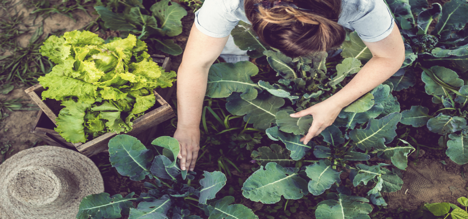
Some of my happiest childhood memories are of being in my Opa’s garden. It was this amazing place for me, larger than life, full of life and just so peaceful. I loved being out there with him pulling weeds, checking plants for pests and watering. I vividly remember carefully walking the rows and just letting myself feel and smell the plants, the soil, the air. Just writing this brings back memories of the scent of fresh dill wafting in the air and hitting my nostrils. So pungent and just oh so wonderful. To this day, dill is one of my favorite herbs and always reminds me of my Opa and Oma.
My favorite times in the garden always involved harvesting. My Opa used to tell me that he would have to stop letting me come when it was time to harvest certain fruits and vegetables because most of it would end up in my belly before we made it back to the house. Currents, strawberries, raspberries, sweet peas, cherries and carrots were just a few of my favorites. It was not unusual for my Opa to catch me in one of the raspberry or strawberry patches plopping one delicious berry after another into my mouth.
Though I was too young to understand the importance at the time, I was very aware that nothing chemical was ever used in the garden. Each row was hand weeded. Pests such as snails and slugs were picked off plants one by one or repelled by natural means such as by planting marigolds and rosemary nearby. Though this was an imperfect method in that it was not 100% effective and did result in decreased yield, my Opa refused to consider anything that was not all natural.
I recently began gardening again and was dismayed at finding chemicals and toxins in everything from potting soil, to mulch, to fertilizers, you name it. And I do not even want to talk about how many shelves were lined with sprays for weed control, pest control, plant food, etc. Knowing that this was not going to work for me or my family and realizing I did not have the time or energy (with a toddler running around) to practice the methods my Opa did, I began looking into how essential oils could help me garden more easily and more naturally. And because it was Spring and I could not possibly be the only person struggling with this, I decided to create a mini class on the topic for my YL team. Here is a link to the class recording for those that are interested in listening to the entire thing (https://www.facebook.com/events/2709885632630971/?active_tab=discussion). Otherwise, here are a few highlights along with a couple of my favorite recipes from the class (Note: I cannot take credit for any of the recipes shared here. Most of these came from the GROW. gardening class (thank you Kelly) with similar recipes found elsewhere in my research.)
- Prep Yourself: It is no secret that bugs can totally ruin your garden experience.
The reality is that using insecticides or sprays made from harsh chemicals comes at a cost to both you and the environment such as the bioaccumulation of toxins in your body that are linked to chronic illness and disease.
- The GOOD news though is that you HAVE options!
- YL Insect Repellent
- DIY Outdoor Spray Recipe:
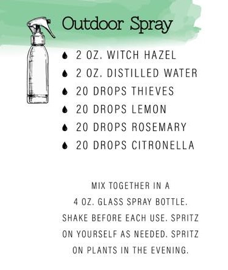
BOUNS: Add a few drops of Kunzea (free this month) to repel ticks. Citronella is also free this month!
- Pets and Your Garden: We LOVE our pets, but don’t necessarily want them in our garden, because let’s face it, they can cause quite a mess. A simple and safe way to discourage them to stay away is by using scents. Did you know that dogs dislike the smell of Black Pepper and Cats dislike the smell of Rosemary? Guess what, those essential oils exist!
- DIY Pets-Be-Gone:
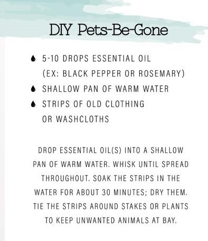
- Unwanted Growth: You can waste SO many hours on weeds. Summer is already short enough, let us not spend unnecessary time dealing with weed overgrowth. Also, sometimes unwanted friends begin to grow on our plants. They can cause poor growth, bad harvests or even plant death.
- Here are safe DIY alternatives that do not involve chemicals that you can use to keep the weeds at bay and help keep your plants healthy and vibrant:
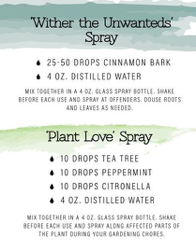
- Pollinator Party: Although some plants can self-pollinate, many others need the help of cross-pollination between male and female plants in order to produce fruit. Who helps with that? POLLINATORS of course!
- Bees and butterflies are some of the friendliest insects you can get in your garden. Help attract them with some wonderful essential oils distilled from flowers:
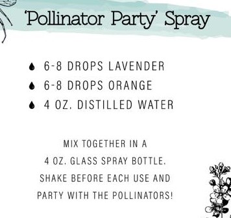
- Companion Plants: Maybe some of you have heard of companion planting…I sure had not.
- Here is the scoop: Some plants play well together, and others do not. This is because every plant has certain nutrients that is draws from the soil and byproducts it excretes back into the soil.
- Planting plants next to each other that use different nutrients from the soil (and better yet, use each other’s excrements) will result in healthier plants and a more bountiful harvest.
- Guess what, essential oils can help with this! You can create a companion spray!
- Add 10-15 drops of the corresponding essential oil to a 4 oz. glass spray bottle. Top with distilled water; shake before use.
PLANT | COMPANION PLANTS |
Green Beans | Lavender, Basil |
Broccoli | Basil, Thyme |
Carrots | Sage |
Cucumber | Sage |
Onion | German Chamomile |
Potatoes | Basil, Sage |
Tomatoes | Basil |
It has been so much fun sharing what I have learned with you all. I hope you can use some of this information to make your gardening experience more productive and FUN! 😊
 Eileen Beardsley joined Young Living as a Distributor in February 2019 and is passionate about sharing about the benefits of using essential oils in her family’s everyday life. Eileen has a 2-year old daughter, Hannah, and two dogs, Cooper and Gentleman Jack.
Eileen Beardsley joined Young Living as a Distributor in February 2019 and is passionate about sharing about the benefits of using essential oils in her family’s everyday life. Eileen has a 2-year old daughter, Hannah, and two dogs, Cooper and Gentleman Jack.

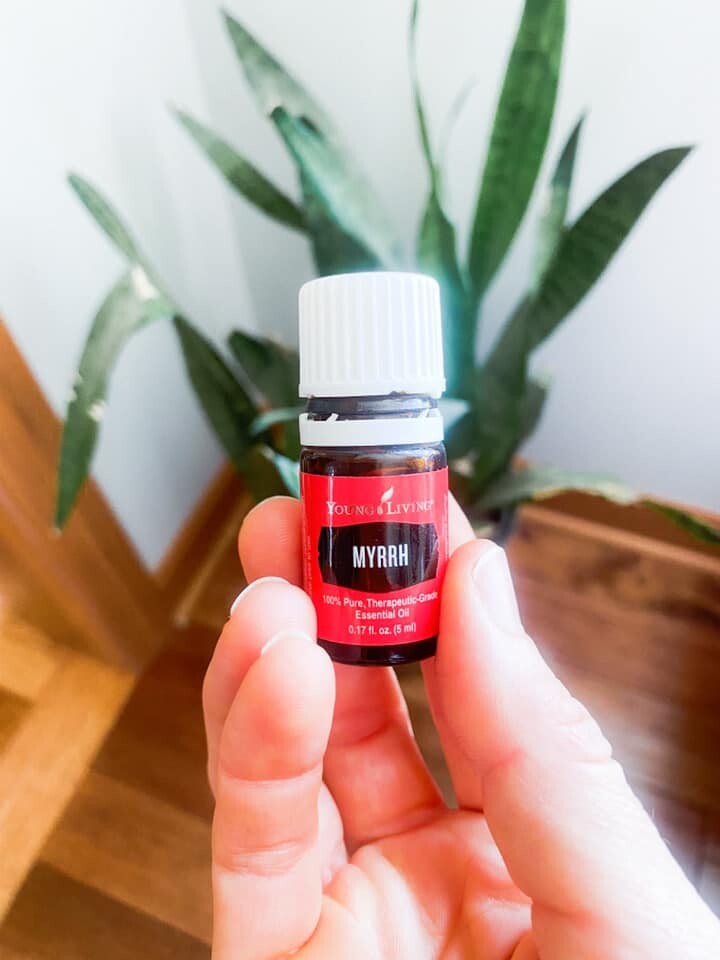
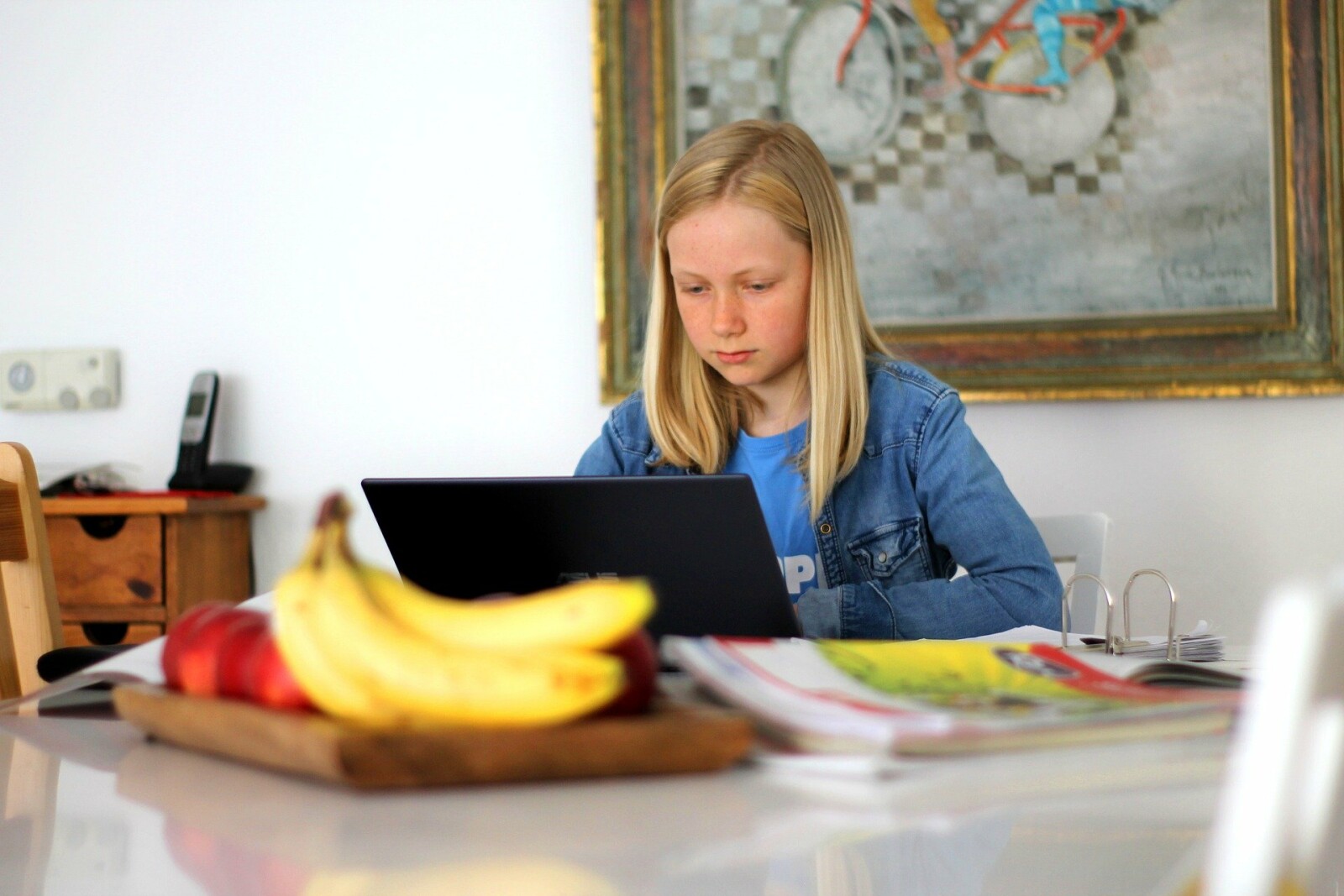
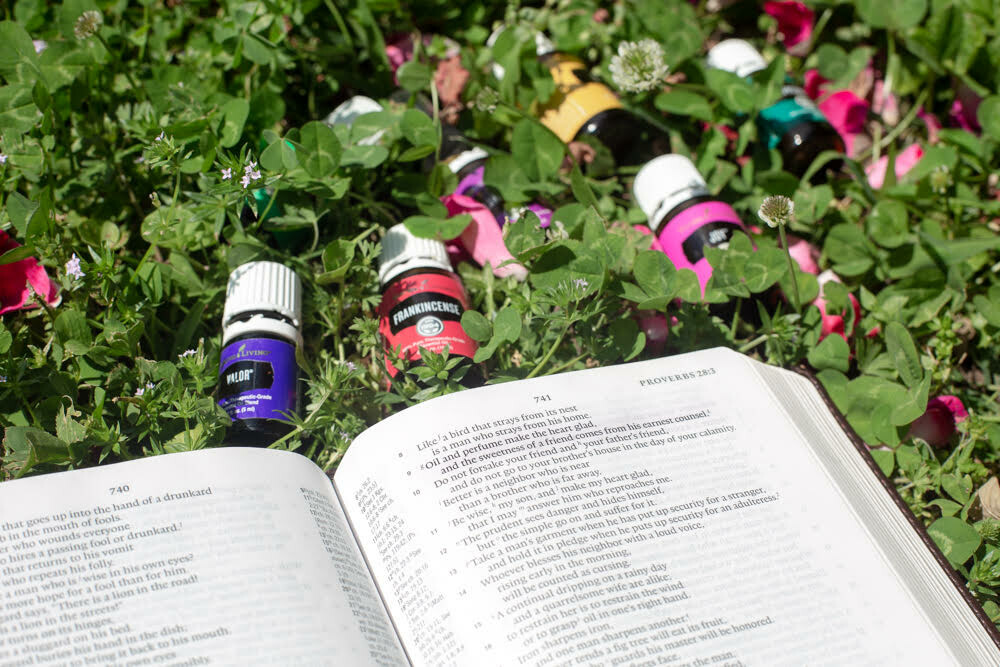

0 Comments